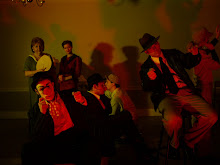 Dramaturge Marti Lyons gives an inside look at The Love of the Nightingale.
Dramaturge Marti Lyons gives an inside look at The Love of the Nightingale.Hera was the wife and one of three sisters of Zeus in the Olympian pantheon of classical Greek Mythology. Her chief function was as the goddess of women and marriage. In Roman mythology, Juno was the equivalent mythical character. The cow, and later, the peacock were sacred to her. Hera's mother was Rhea and her father, Cronus.
Portrayed as majestic and solemn, often enthroned, and crowned with the polos (a high cylindrical crown worn by several of the Great Goddesses), Hera may bear a pomegranate in her hand, emblem of fertile blood and death and a substitute for the narcotic capsule of the opium poppy. A scholar of Greek mythology Walter Burkert writes in Greek Religion, "Nevertheless, there are memories of an earlier aniconic representation, as a pillar in Argos and as a plank in Samos."
Hera was known for her jealous and vengeful nature, most notably against Zeus's paramours and offspring, but also against mortals who crossed her, such as Pelias. Paris offended her by choosing Aphrodite as the most beautiful goddess, earning Hera's hatred.
The Love of the Nightingale runs May 3-29.
Tickets are available through our website.


1 comment:
Very Interesting!
Thank You!
Post a Comment